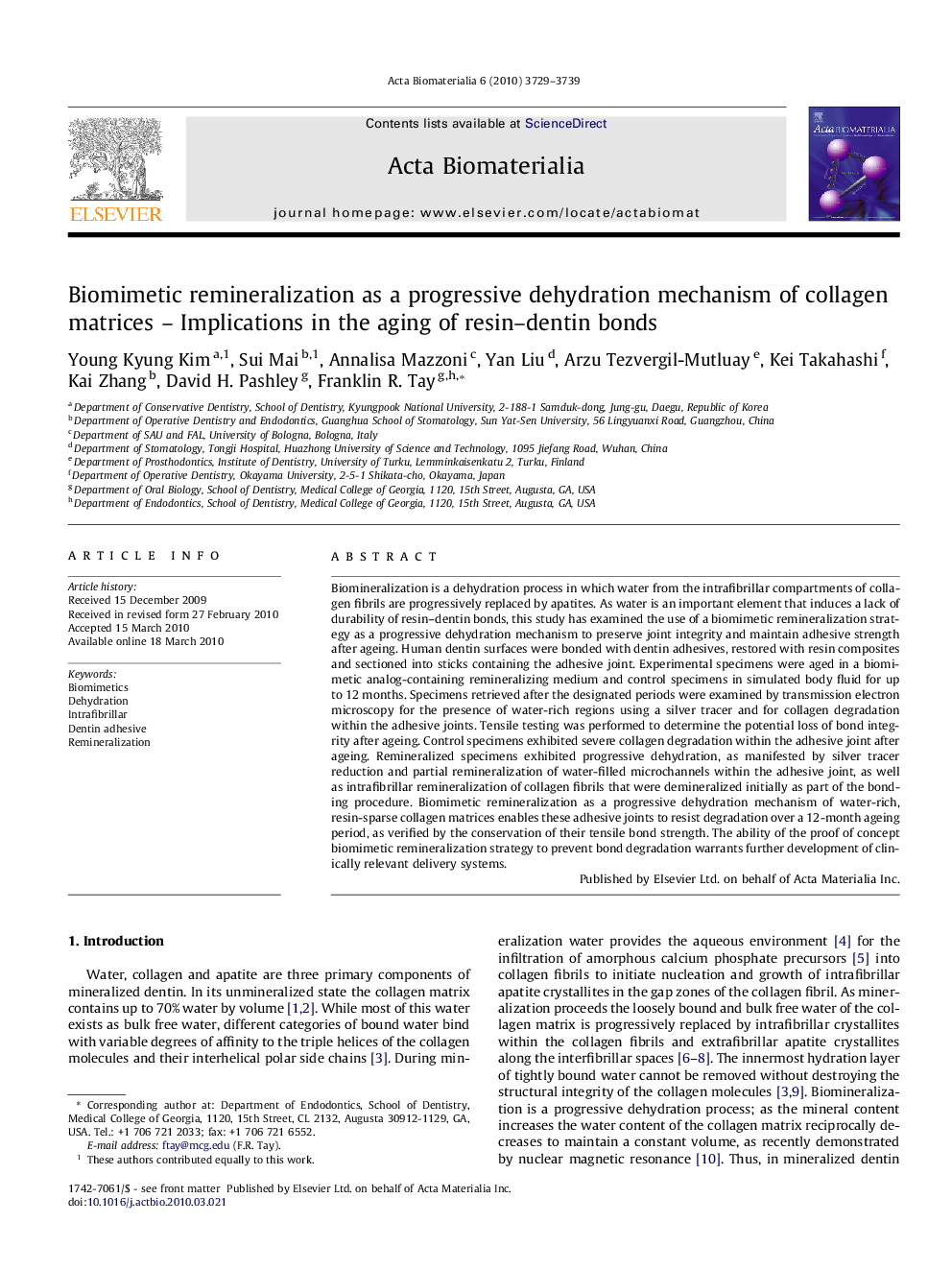| Article ID | Journal | Published Year | Pages | File Type |
|---|---|---|---|---|
| 2169 | Acta Biomaterialia | 2010 | 11 Pages |
Biomineralization is a dehydration process in which water from the intrafibrillar compartments of collagen fibrils are progressively replaced by apatites. As water is an important element that induces a lack of durability of resin–dentin bonds, this study has examined the use of a biomimetic remineralization strategy as a progressive dehydration mechanism to preserve joint integrity and maintain adhesive strength after ageing. Human dentin surfaces were bonded with dentin adhesives, restored with resin composites and sectioned into sticks containing the adhesive joint. Experimental specimens were aged in a biomimetic analog-containing remineralizing medium and control specimens in simulated body fluid for up to 12 months. Specimens retrieved after the designated periods were examined by transmission electron microscopy for the presence of water-rich regions using a silver tracer and for collagen degradation within the adhesive joints. Tensile testing was performed to determine the potential loss of bond integrity after ageing. Control specimens exhibited severe collagen degradation within the adhesive joint after ageing. Remineralized specimens exhibited progressive dehydration, as manifested by silver tracer reduction and partial remineralization of water-filled microchannels within the adhesive joint, as well as intrafibrillar remineralization of collagen fibrils that were demineralized initially as part of the bonding procedure. Biomimetic remineralization as a progressive dehydration mechanism of water-rich, resin-sparse collagen matrices enables these adhesive joints to resist degradation over a 12-month ageing period, as verified by the conservation of their tensile bond strength. The ability of the proof of concept biomimetic remineralization strategy to prevent bond degradation warrants further development of clinically relevant delivery systems.
